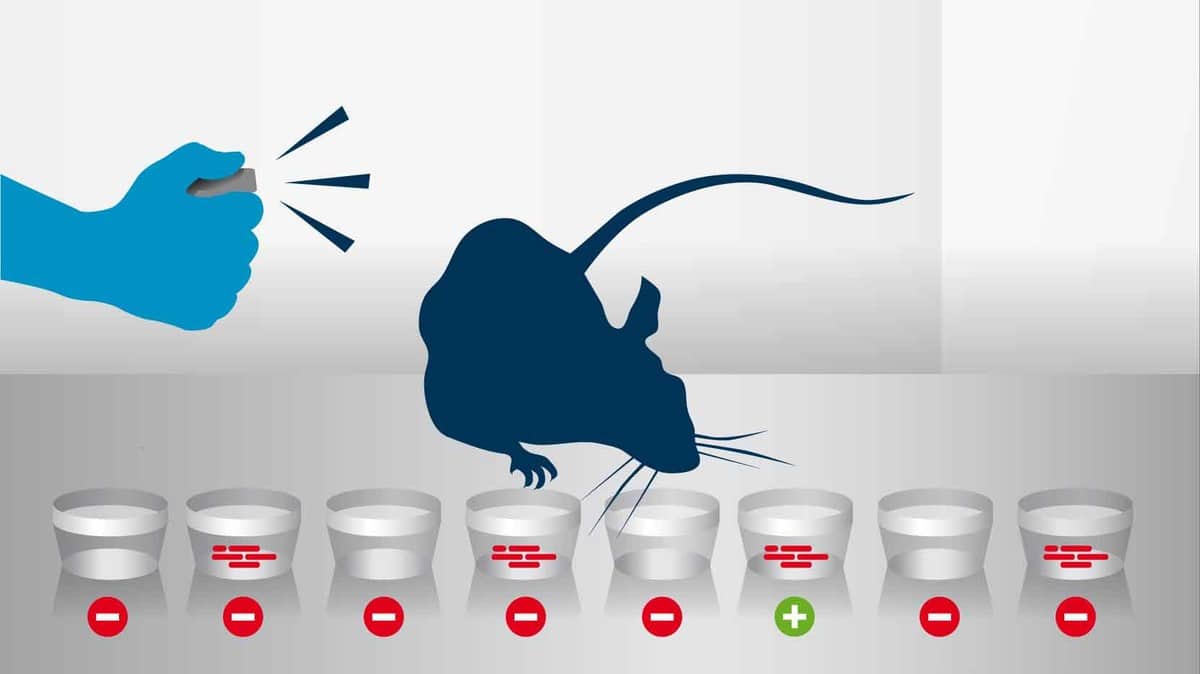It takes 9 months to a year to fully train APOPO’s TB detection rats. They are extremely well cared for, receiving an excellent diet, regular exercise, plenty of personal attention and scheduled playtime, as well as regular care from a vet and onsite animal welfare officer.
Socialization and habituation
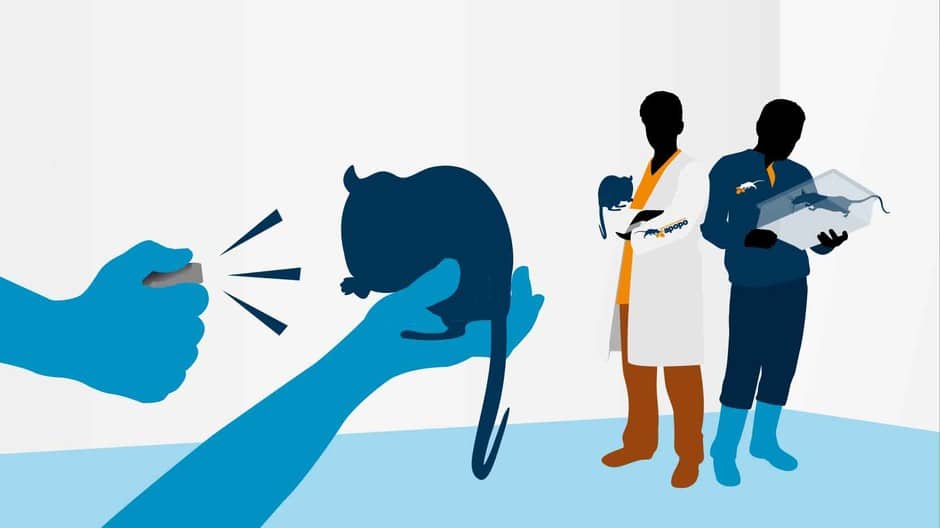
At four-weeks old the rats begin to open their eyes and learn to become at ease in their surroundings and with people. They are regularly handled by trained staff and introduced to everyday human sounds and smells.
Clicker training and scent conditioning
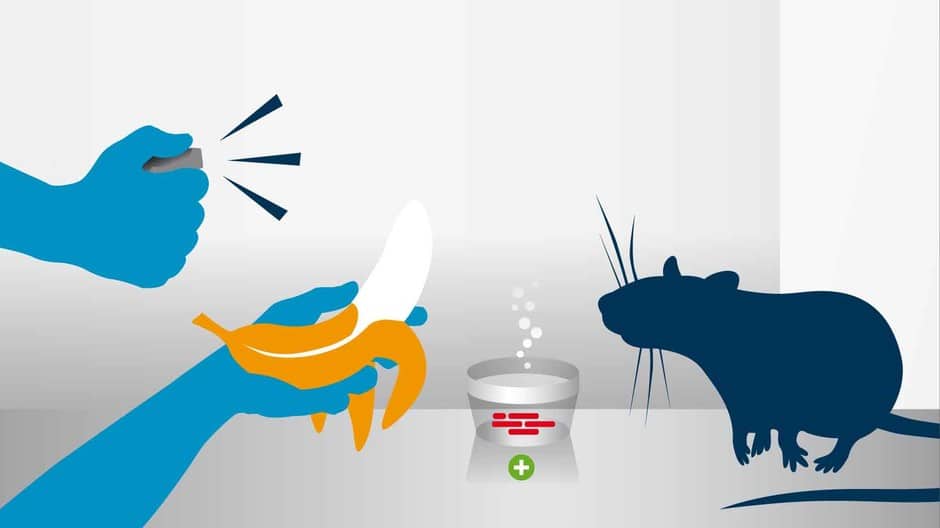
The rats are trained to associate the sound of a click with a reward. When they near a TB-positive sputum sample they hear a click and receive a tasty food reward.
Scent discrimination
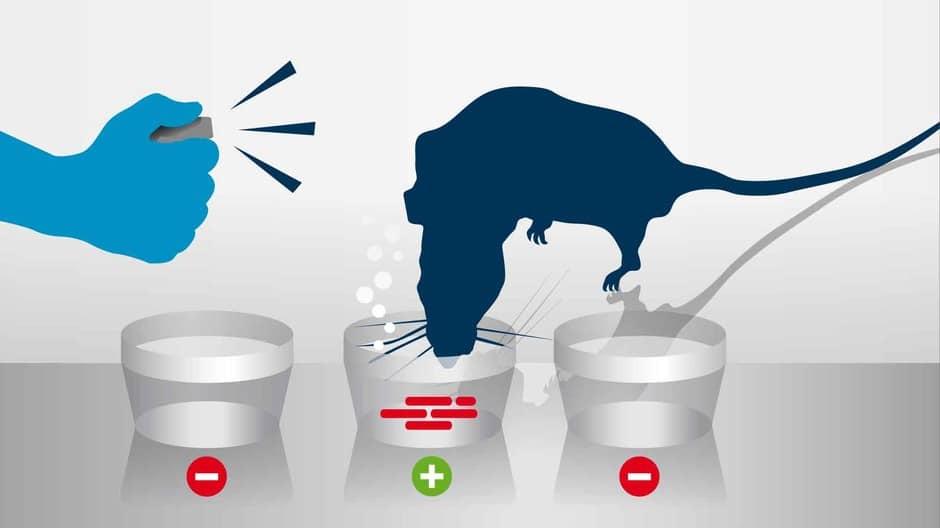
They now learn to distinguish between TB-positive and TB-negative samples. The rats will only hear a click and receive a reward if they interact with the TB-positive sample.
Multiple sample evaluation
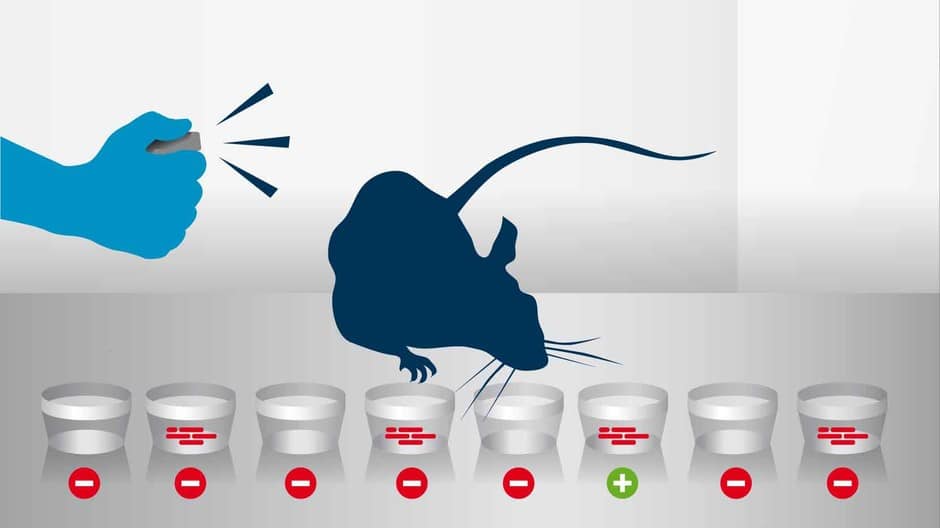
In a larger testing chamber, rows of 10 samples are placed beneath sniffing holes. The rat learns to evaluate large numbers of samples. It is trained to hold its nose over TB-positive samples for 3 seconds.
TB Rat Graduation
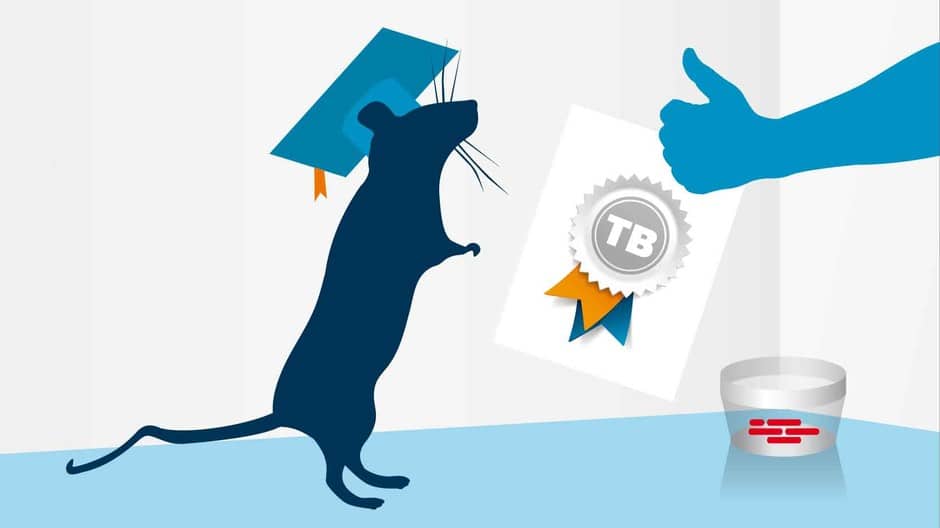
APOPO’s TB rats are now evaluated through a strict testing process. The rat must find all the TB-positive patient samples in the test and correctly ignore all the TB-negative samples. They are allowed to miss no more than 1 positive and indicate on 2 or fewer negatives in order to pass the test.
Detecting TB
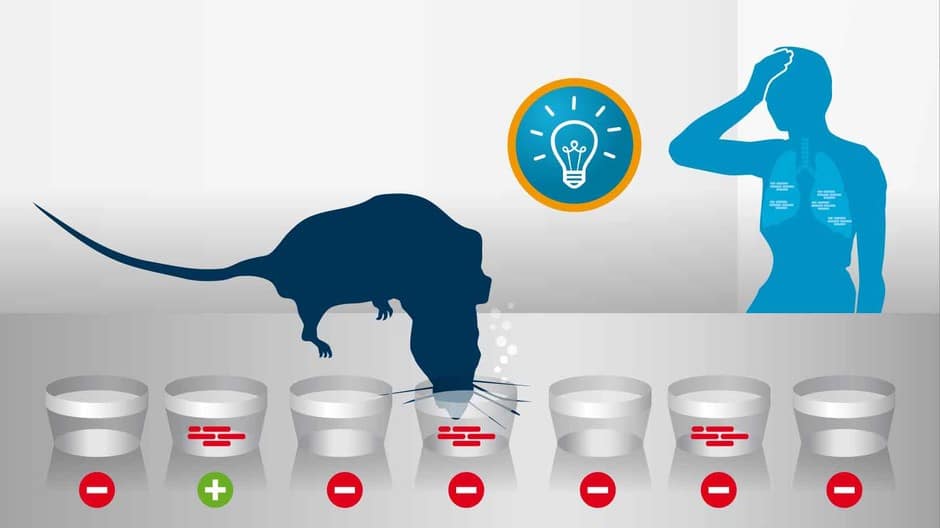
The HeroRAT is now ready for operational research and tests the daily samples that arrive from partner clinics. Samples determined to be negative by the clinic that the rat indicates is positive for TB are re-checked in APOPO’s lab using WHO-endorsed methods before alerting the clinic. APOPO has raised detection rates of partner clinics by 40%.

